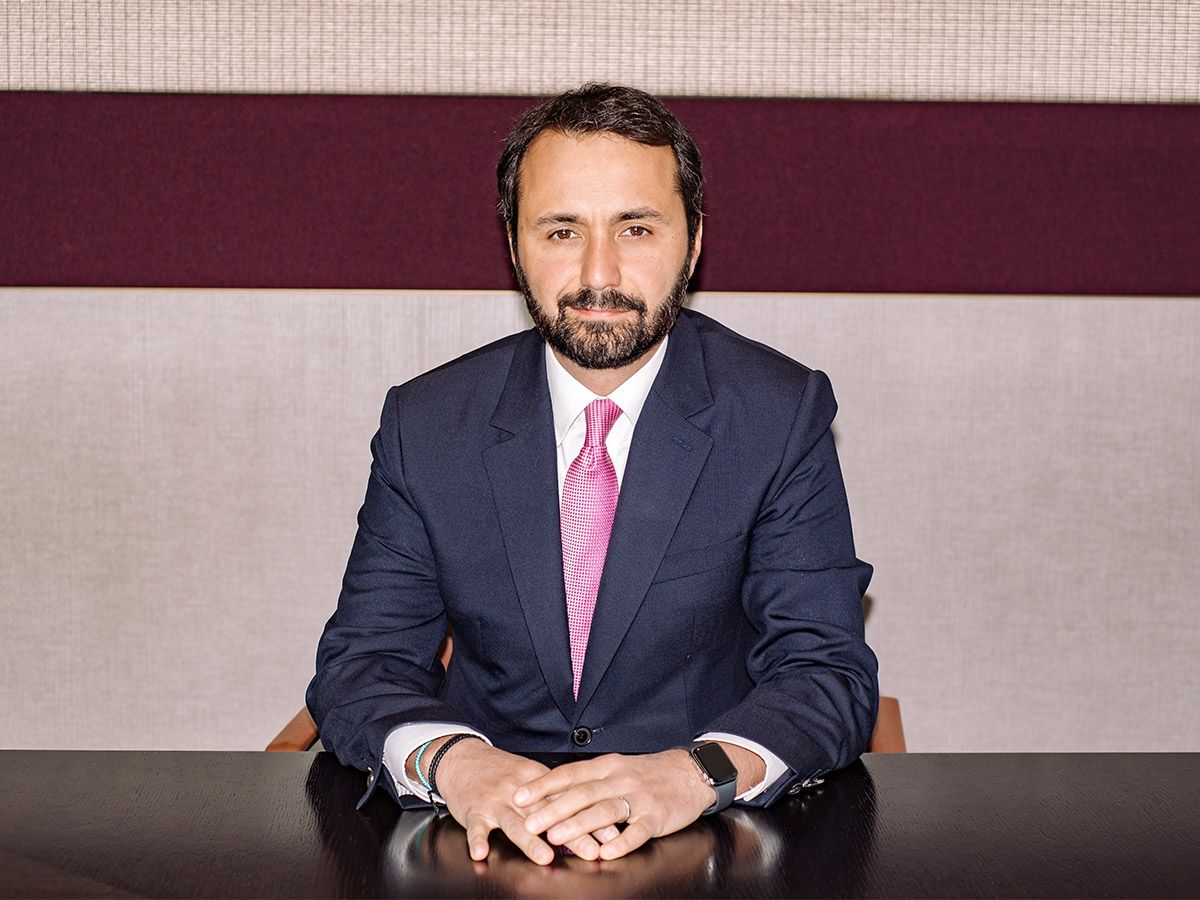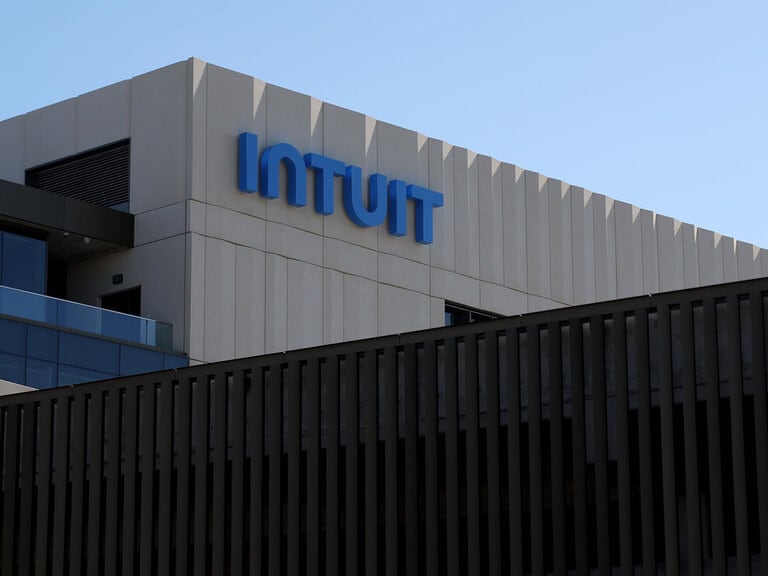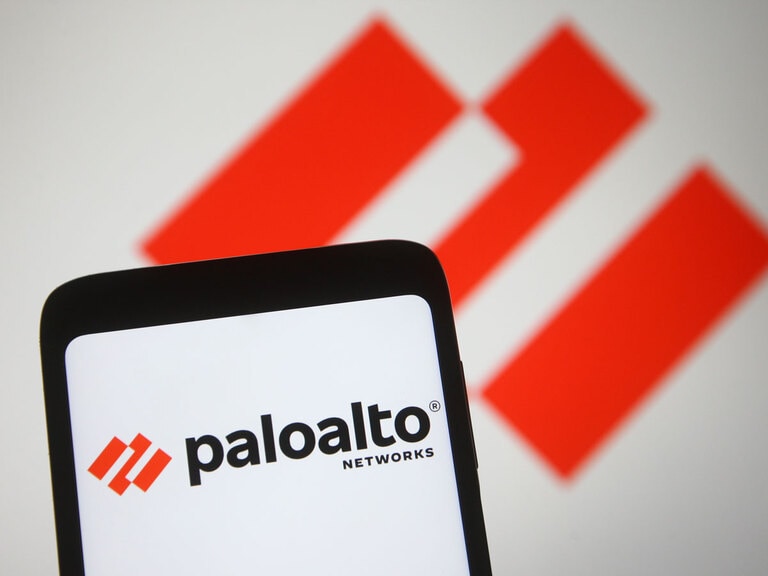Mouhammed Choukeir, chief investment officer at Kleinwort Hambros declares, “There are only two ways to lose money or have negative outcomes. The first is not having an investment process. The second is not following that process.”
He is speaking from the central London offices of the private bank, which came into existence when investment house Kleinwort Benson was taken over by Société Générale. Choukeir, who retained his position as chief investment officer, saw the funds he managed shoot up threefold overnight.
Despite the change, one thing remained constant: his investment philosophy. Choukeir has been developing it since the dot-com boom and bust of the late 1990s, when, after graduating in computer science, he was working at IBM and increasingly becoming interested in finance and the global economy.
There was little process in the decision-making around the bursting of the dot-com bubble, or even later in the financial crash of 2007, according to the investor.
“There was this big sell-off in equity markets and subsequent cut in interest rates, and we saw the Federal Reserve cut interest rates quite aggressively and unexpectedly,” he says. “That was quite an eye-opening experience early on in my career, about the impact central banks have, and the surprise factor to markets.”

Such occasions have informed Choukeir’s career across Citigroup, where he looked at how to use technology to model global markets, and at Morgan Stanley, where he spent 10 years forming “a robust and repeatable process through analysing patterns and rules that can inform sound investment decisions”.
Fast forward to 2019, and Choukeir is now also serving as deputy CEO at Kleinwort Hambros, spending his time running the investment business and leading the digital development of the bank.
The VAMOS framework
Technology and the data it provides has long been integral to Choukeir’s process-led investment strategy, for which he uses three well-known strategies in tandem: valuation, momentum and sentiment – a combination that Choukeir outlines through the acronym ‘VAMOS’.
“The strategy is all about staying intuitive around the basics of investing. If you buy something that’s attractively valued and gaining in price momentum, it’s likely to realise that value, while sentiment helps inform the decision,” he says.
“The strategy is all about staying intuitive around the basics of investing. If you buy something that’s attractively valued and gaining in price momentum, it’s likely to realise that value, while sentiment helps inform the decision”
Assessing valuation
For Choukeir, valuation takes the lead. “The biggest risk is overpaying for an asset. But if you underpay, you have the opportunity to make money.”
When analysing valuation of equities, the key metrics Choukeir looks to are price-to-book and price-to-tangible-book. “These are reliable as they can be tested through data. They are also far more stable and less open to manipulation than price-to-earnings,” he explains.
“Price-to-earnings is very volatile because earnings can be volatile” he adds.
Other reliable metrics Choukeir looks to are the cyclically adjusted price-to-earnings (CAPE) ratio and dividend yield.
“There’s no one magic answer to the question, you look at them as a collection – it’s like a dashboard. If all of them are pointing towards expensive you’re in a dangerous place. But if all of them are pointing towards cheap, you know that it’s a reasonably good environment to build positions.”
But while these metrics are very useful at extremes – and enable investors and traders to be “bold with their convictions” – the majority of the time “they are going to be in between, and additional assessments must be made”. This is one situation where momentum and sentiment can come into play.
“There’s no one magic answer to the question, you look at them as a collection – it’s like a dashboard. If all of them are pointing towards expensive you’re in a dangerous place. But if all of them are pointing towards cheap, you know that it’s a reasonably good environment to build positions”
Measuring momentum
Choukeir sees momentum as the perfect counterbalance to valuation, particularly as looking at valuation alone can mean missing out on expensive stocks that nevertheless have plenty of room to run. “If an equity is expensive but in a positive momentum, then it’s worthwhile having exposure because you can still generate handsome returns,” he explains.
Citing the example of the continuing rally of US equities, which were already expensive by CAPE and price-to-earnings multiples in 2012, Choukeir says: “Valuation-wise they were definitively unattractive, yet from 2012 to today, the US equity market has more than doubled.
“Some of that was due to an improvement in earnings and an end to the earnings recession, but a lot of it was driven by momentum.
“What momentum adds to valuation is the ability to see not only the underlining intrinsic value of an asset, but also what people think an asset is worth. That’s why a combination of the two is quite powerful.”
“What momentum adds to valuation is the ability to see not only the underlining intrinsic value of an asset, but also what people think an asset is worth. That’s why a combination of the two is quite powerful”
For Choukeir, focusing on momentum or value alone, as many do, can lead to very long periods of both over- and underperformance, which is why at different points the focus on each should be weighted. “Value investing in the past four to five years has underperformed because of the power of momentum in the tech sector. This year there’s been a bit of reversal,” he says.
Another consideration when weighting the two is time. “If your time horizon is five or 10 years, then you want to give a bigger emphasis to valuation,” says Choukeir. “Momentum, on the other hand, can be much shorter term.”
Sensing sentiment
The final consideration of the framework, which acts as an extra layer across valuation and momentum, is sentiment.
“Sentiment is a very contrarian indicator,” says Choukeir. “It’s probably the most relevant investment principle that needs a process, because during a period of extreme pessimism, for example, there’s usually a reason for it – it could be geopolitics, Brexit or trade talks.
“Those are the times when you really want process to guide you because it’s easy to become emotional, even irrational, and the process will tell you: ‘I know that there’s a prevailing negative mood, but the valuations are good, the momentum is positive, so stay invested’ – and you will be rewarded more often than not.”
Sentiment is also an area that’s particularly rich in Choukeir’s favourite tool: data. He notes that investor surveys, such as the American Association of Individual Investors’ Sentiment Survey, are key resources.
The use of artificial intelligence is also a new method the financier has been using.
“If you scrape articles, the language that’s being used can tell you if it’s currently a negative or positive view,” Choukeir explains. It’s an approach that has been integral to Kleinwort Hambros. “It’s helped us navigate some difficult periods and get big returns in good markets.”

Standing strong
Choukeir’s belief that an investment framework and process can generate returns has been further solidified by the political instability of the past five years.
“The markets, in the short run, will listen to politics, in the long run, they don’t care,” he says.
“If I were to tell you five years ago that we’re going to see the destabilisation of Europe, due not only to a Greek crisis, but problems in a group of countries, and then we’re also going to have a big trade battle between the two largest economies in the world, and we’re going to have a very controversial president in the US – what would you do about your investments? A lot of people would have said, ‘I’m not sticking around.’”
“The markets, in the short run, will listen to politics, in the long run, they don’t care”
However, markets have proven resilient. And despite a pessimistic end to 2018, the markets had a strong Q1 this year, beating all expectations. The S&P 500 had the best first 12 days of the year since 1987, while Nasdaq was buoyed by strong tech figures that saw Netflix, Facebook and Amazon report strong financial returns.
“Ultimately, companies that are well run with good balance sheets, good management teams and good products will navigate new political realities,” he explains.
“Take Brexit: if all of a sudden we have a customs arrangement with Europe that means tariffs have increased, then companies that are not able to react will suffer, but the companies that have the mobility, the flexibility and the cash to adjust will navigate that potential new environment.”
“Ultimately, companies that are well run with good balance sheets, good management teams and good products will navigate new political realities”
Navigating climate change
One area where there will be undeniable development will be climate change. The inevitable changes to the way we produce energy due to global warming will not be overcome by the current good balance sheets of companies that generate earnings via the use of damaging fossil fuels. It means that Choukeir sees those that are not looking to the future as inherently unsustainable in the long run.
“If companies are taking those views into account, and expecting the conditions and prevailing environment, then they’re creating a sustainable business model. That is a proven way to invest,” he says.
Shell, as an example, has been under pressure over oil production and carbon emissions, but made a commitment, with milestones, to reduce fossil-fuel dependence and invest in renewable energy.
“It’s an example of a company that was under pressure socially – and is likely to come under pressure for taxation, or governmental policy – but gives us a model that recognises the world we live in. That’s sustainable investing,” says Choukeir. “So we like it not just for ethical reasons, but actually for investment reasons as well.”
Back to tech
Presently, Choukeir believes that the banking sector is in a more rigid place than it was at the time of the last financial crash.
“We’ve seen a lot of regulations put in place over the past 10 years and most banks are now equipped to deal with the regulation, and any changes or additions that might be made,” he says.
The thing that most excites him about the banking industry though is increased investment in technology. “This is a totally game-changing environment where people want to bank in a different way. Technology investments are on the up across the banking sector, opening up new challenges and new opportunities.”
And so the computer-science degree has come in handy after all. “It’s a real 360 as I started out being interested in technology and I find myself, 20 years on, with the interlace of banking, finance and technology, essentially working in tech. It means that I can bring those two passions to life.”

Risk and opportunity
Four themes to watch from Choukeir:
Tech will feel the pressure
Momentum investing in the tech sector, led by investment in FAANG players, has boomed for the past five years, but tech is now feeling the pressure as growth slows and more nations campaign for regulation.
“They are going to have to save some potential pressure to break out, spin-off, ring-fence or create Chinese walls”. Choukeir does, however, note that this is a similar process that has occurred with industries such as auditing and finance, with solid companies easily weathering the pressures.
Netflix earnings will slow
Netflix is one of the best performers in the FAANG group, but it is maturing, which will lead to a slower pace of growth in coming years. “There’s saturation at its top line and the earnings will come under pressure.”
Finance stocks are attractively priced
Although the finance sector is exposed to any downturn in economic activity, banking stocks are attractively priced, despite suffering on the momentum and sentiment side.
“The unloved assets are financials, while the overly loved assets are tech. Tech has been an amazing performer the last five years, outstripping the performance of the S&P by a huge margin. But you’re overpaying right now for that space, whereas the financials are offering more value,” says Choukeir.
“There’s obviously a lot of challenges in the financial system still, especially in Europe, but there’s plenty of decent valuations; the American banks are not super expensive, even after the recent rally they’ve had.”
“The unloved assets are financials, while the overly loved assets are tech. Tech has been an amazing performer the last five years, outstripping the performance of the S&P by a huge margin. But you’re overpaying right now for that space, whereas the financials are offering more value”
Equities will continue to prosper
Kleinwort Hambros continues to like equities. “Ultimately what equity markets care about is can the company navigate irrespective of the environment. We've been through a recession every seven or eight years, some of them are deep, and yet equity markets continue to deliver,” says Choukeir.
Disclaimer Past performance is not a reliable indicator of future results.
CMC Markets is an execution-only service provider. The material (whether or not it states any opinions) is for general information purposes only, and does not take into account your personal circumstances or objectives. Nothing in this material is (or should be considered to be) financial, investment or other advice on which reliance should be placed. No opinion given in the material constitutes a recommendation by CMC Markets or the author that any particular investment, security, transaction or investment strategy is suitable for any specific person.
The material has not been prepared in accordance with legal requirements designed to promote the independence of investment research. Although we are not specifically prevented from dealing before providing this material, we do not seek to take advantage of the material prior to its dissemination.
CMC Markets does not endorse or offer opinion on the trading strategies used by the author. Their trading strategies do not guarantee any return and CMC Markets shall not be held responsible for any loss that you may incur, either directly or indirectly, arising from any investment based on any information contained herein.
*Tax treatment depends on individual circumstances and can change or may differ in a jurisdiction other than the UK.
Continue reading for FREE
- Includes free newsletter updates, unsubscribe anytime. Privacy policy





